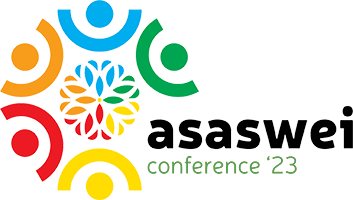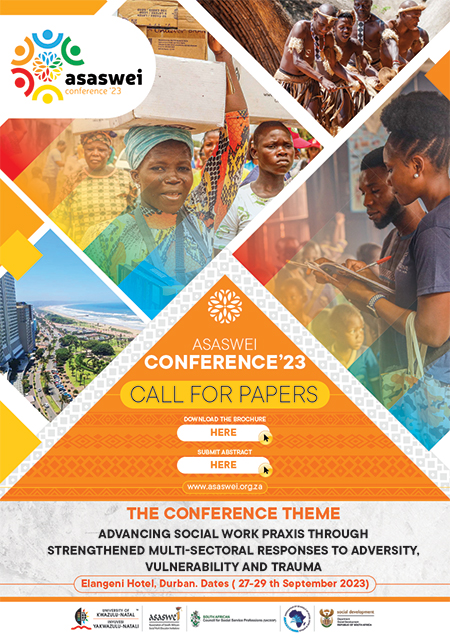Secondary tabs
The View page displays a submission's general information and data. Watch video
Submission information
Submission Number: 103
Submission ID: 137
Submission UUID: 65e105e9-3004-41c0-a758-3c76dd817870
Submission URI: /2023/abstracts
Created: Thu, 07/06/2023 - 13:32
Completed: Thu, 07/06/2023 - 13:43
Changed: Wed, 08/16/2023 - 13:38
Remote IP address: 41.13.143.218
Submitted by: Anonymous
Language: English
Is draft: No
Current page: Complete
Webform: Abstract
Presenters
Dr.
Ramphabana
Livhuwani
University of KwaZulu-Natal
Livhuwani Ramphabana is a Lecturer at the University of KwaZulu-Natal. He holds a Master's in Social Work and a PhD in Social Work from the University of Limpopo in South Africa. His research interests include; child protection, gender and culture, and public health. He has published several papers in the field of child sexual abuse.
No
Abstract
The intersection of culture, tradition, and delayed disclosure of child sexual abuse: insights from the Vhavenda Tribe
THEME 2: Building sustainable, resilient, and self-reliant communities through indigenous modalities, inter-sectoral collaborations, and partnerships
SUB 2.5 Offence prevention and promotion of safer spaces through partnerships with community structures
Oral Presentation
Child sexual abuse (CSA) is a global problem that interrupts the willpower to encourage the healthy development of children in societies. Although CSA is a global issue, culture and tradition play a significant role on how people perceive and respond to the abuse. This qualitative study used an exploratory design to understand the intersection of culture, tradition, and delayed disclosure in the context of the Vhavenda tribe. Five adult survivors of CSA, seven caregivers of survivors of CSA, four social workers, and two traditional leaders were purposively sampled to participate in the study. Data was collected through semi-structured interviews and thereafter, it was arranged and analysed thematically. The findings of the study contribute to a deeper understanding of the cultural dynamics at play and highlights the need for culturally sensitive interventions to facilitate timely disclosure, support survivors, and foster protective environments. Indigenous systems should be recognised and strengthened to fight, preserve and protect children from sexual abuse.
Reviewer ONE Feedback
Dr
Somaya
Abdullah
Yes
Empirical Research
Accepted
Reviewer TWO Feedback
Prof
Linda
Harms Smith
Yes
Empirical Research
Accepted

